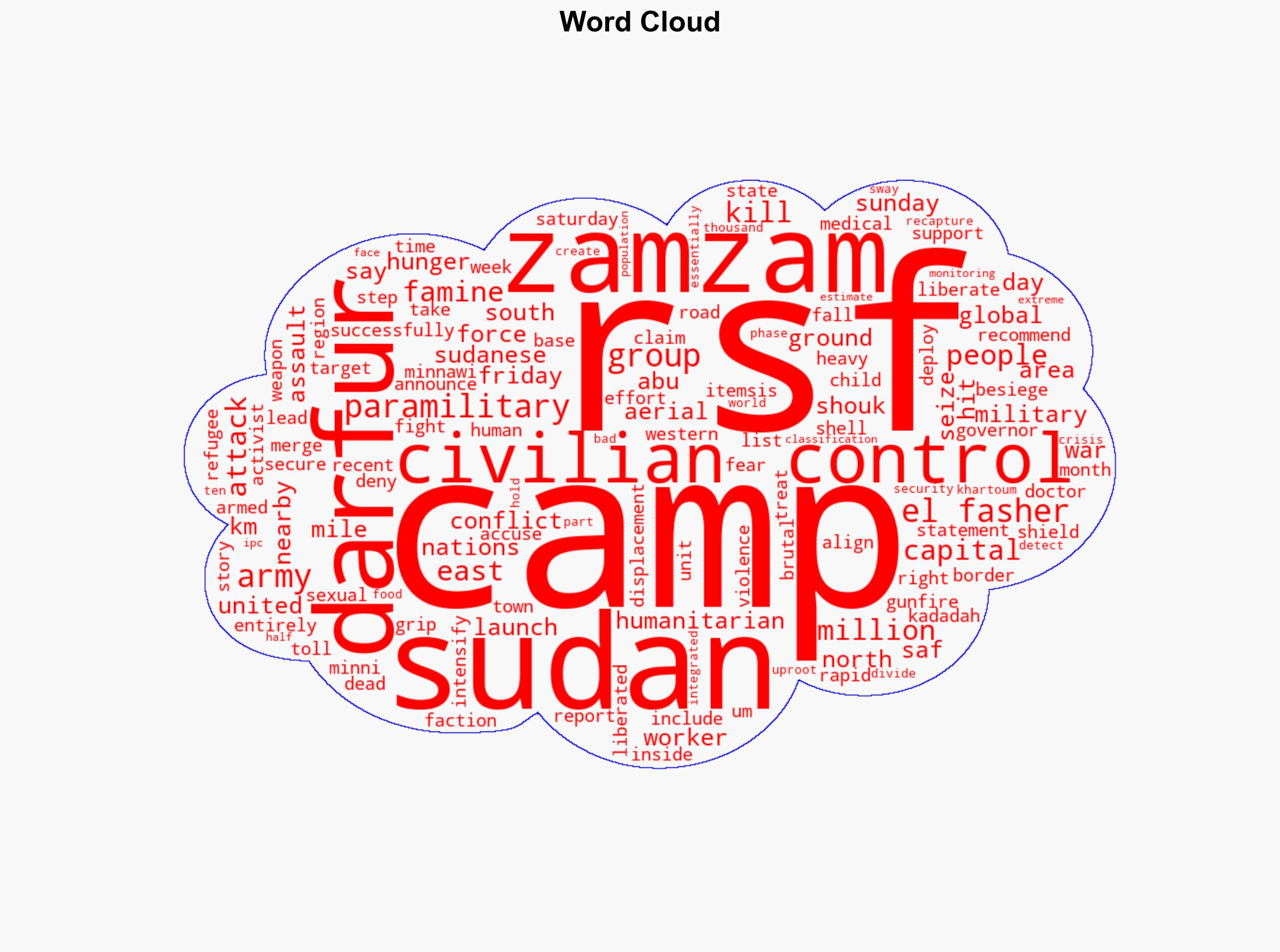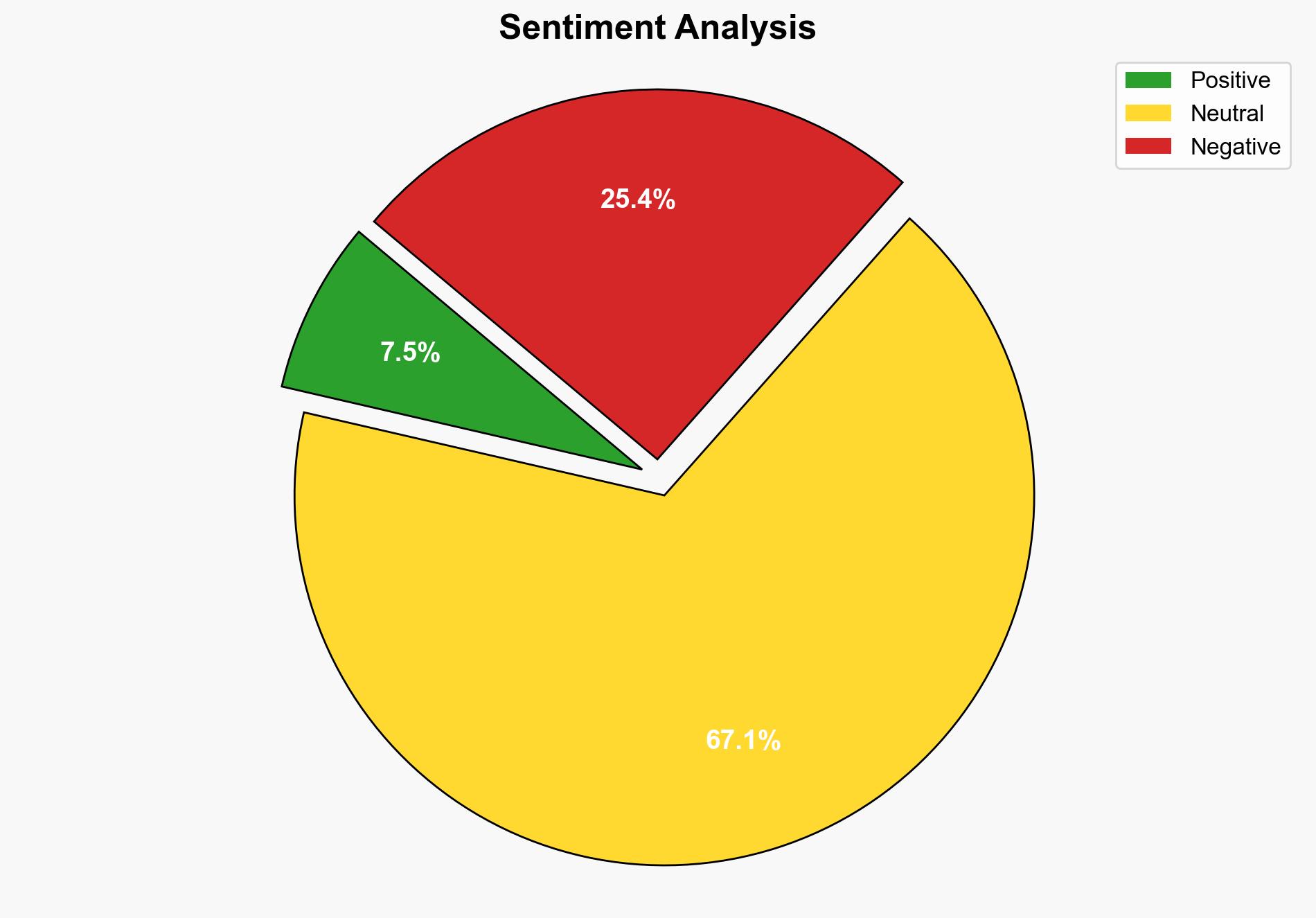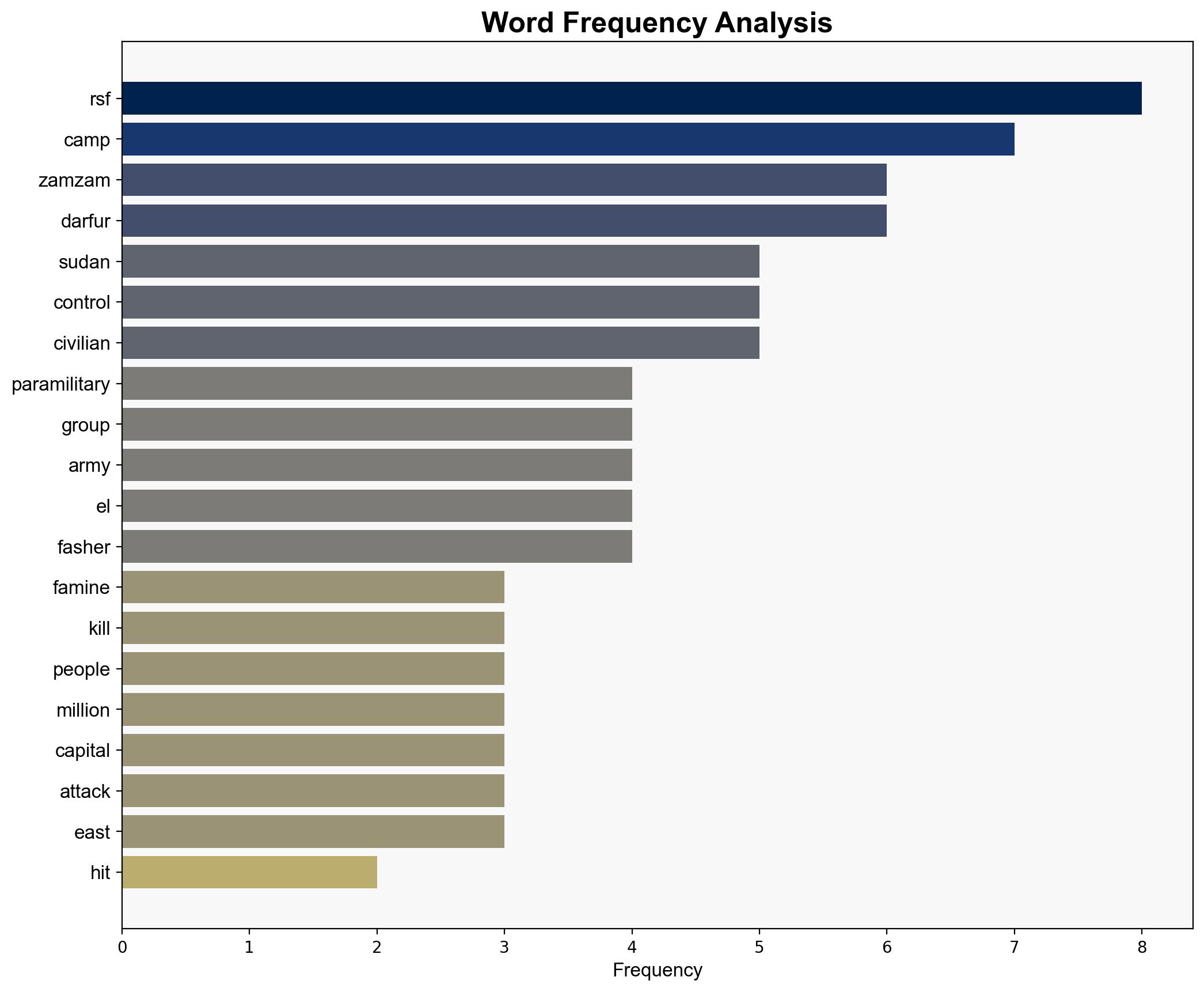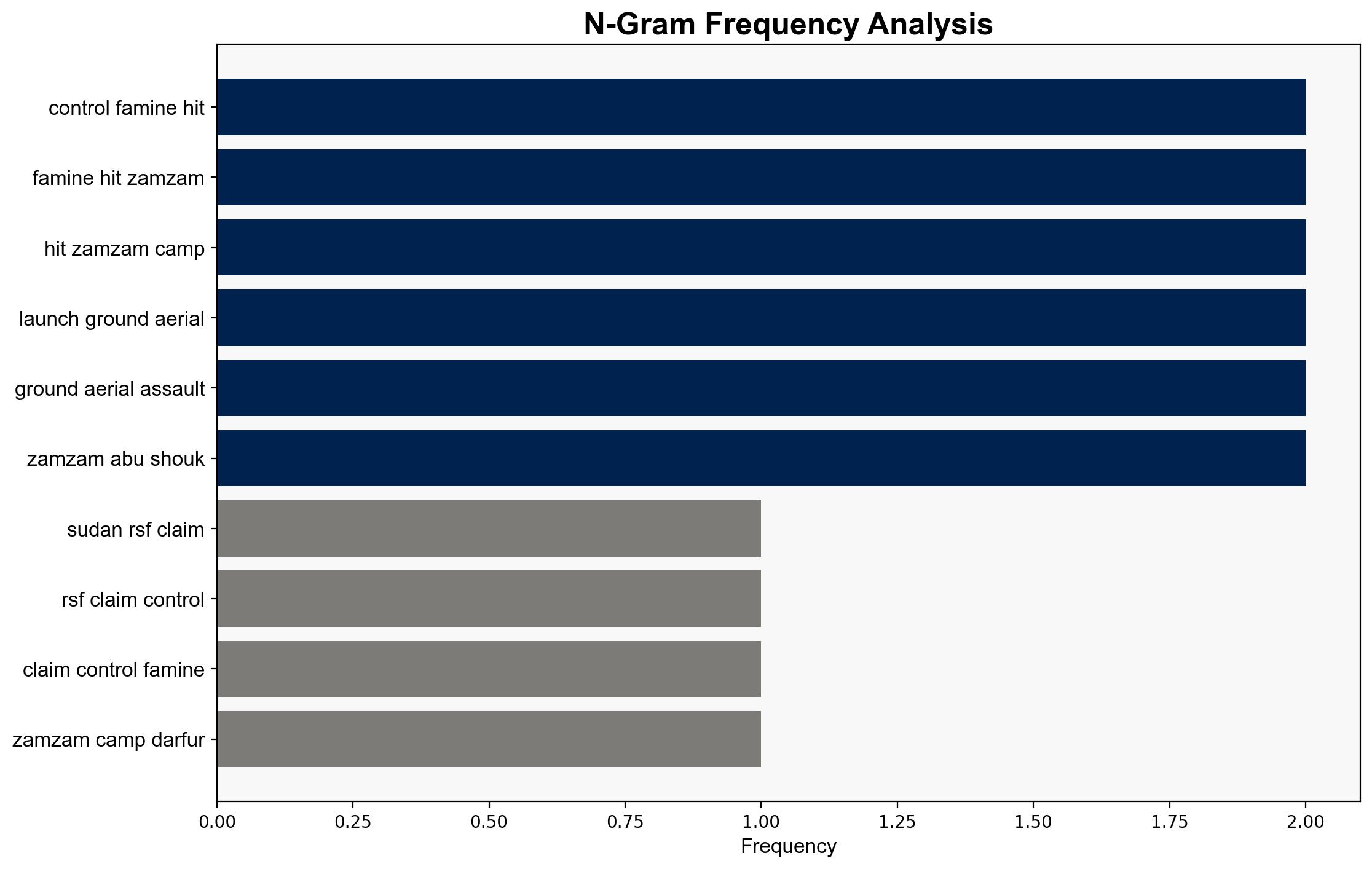Sudans RSF claims control of famine-hit Zamzam camp in Darfur – Al Jazeera English
Published on: 2025-04-13
Intelligence Report: Sudans RSF claims control of famine-hit Zamzam camp in Darfur – Al Jazeera English
1. BLUF (Bottom Line Up Front)
The Rapid Support Forces (RSF) have claimed control over the Zamzam camp in Darfur, following intense military operations against the Sudanese Armed Forces (SAF). This development exacerbates the humanitarian crisis in the region, with significant civilian casualties reported. The RSF’s actions are part of a broader strategy to consolidate control over Darfur, posing increased risks to regional stability and humanitarian conditions.
2. Detailed Analysis
The following structured analytic techniques have been applied for this analysis:
General Analysis
The RSF’s assault on the Zamzam camp involved both ground and aerial operations, resulting in over 100 fatalities, including children and aid workers. The RSF’s justification for the attack centers on allegations that the SAF used the camp as a military base, employing civilians as human shields. This operation is part of a larger campaign by the RSF to capture el-Fasher, the last state capital in Darfur not under their control. The conflict has led to a severe humanitarian crisis, with millions facing extreme hunger.
3. Implications and Strategic Risks
The RSF’s actions in Darfur present significant risks to regional stability and humanitarian conditions. The conflict has resulted in tens of thousands of deaths and displaced over 12 million people. The use of sexual violence and targeting of civilian areas could lead to further international condemnation and potential sanctions. The division of Sudan into RSF and SAF-controlled regions may lead to prolonged conflict and instability, affecting neighboring countries and international interests.
4. Recommendations and Outlook
Recommendations:
- Engage in diplomatic efforts to mediate between the RSF and SAF to prevent further escalation.
- Increase humanitarian aid and support to affected regions, ensuring safe passage for aid workers.
- Monitor and document human rights violations for potential international legal actions.
Outlook:
Best-case scenario: A ceasefire agreement is reached, allowing for humanitarian aid and negotiations for a political resolution.
Worst-case scenario: Continued escalation leads to further regional destabilization and a worsening humanitarian crisis.
Most likely outcome: Protracted conflict with intermittent negotiations and ongoing humanitarian challenges.
5. Key Individuals and Entities
The report mentions significant individuals and organizations, including Minni Minnawi and the United Nations, without providing any roles or affiliations.




